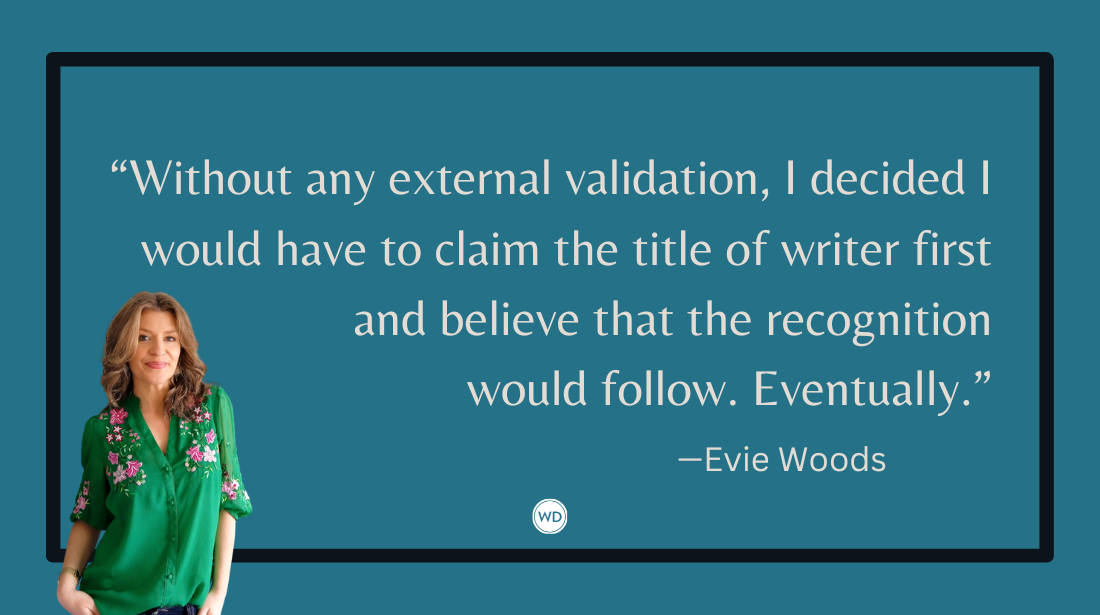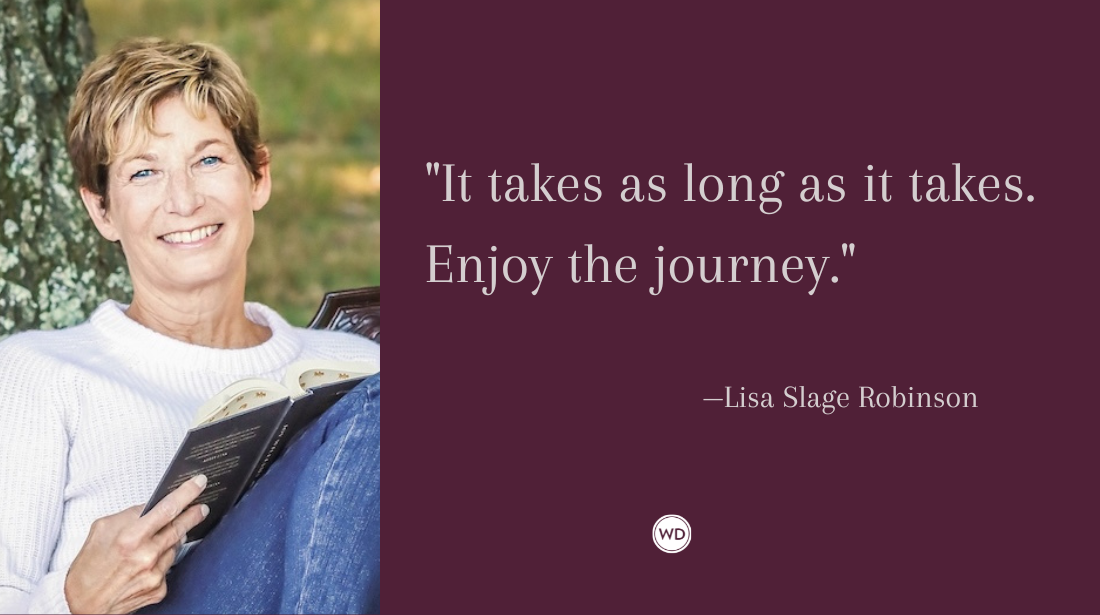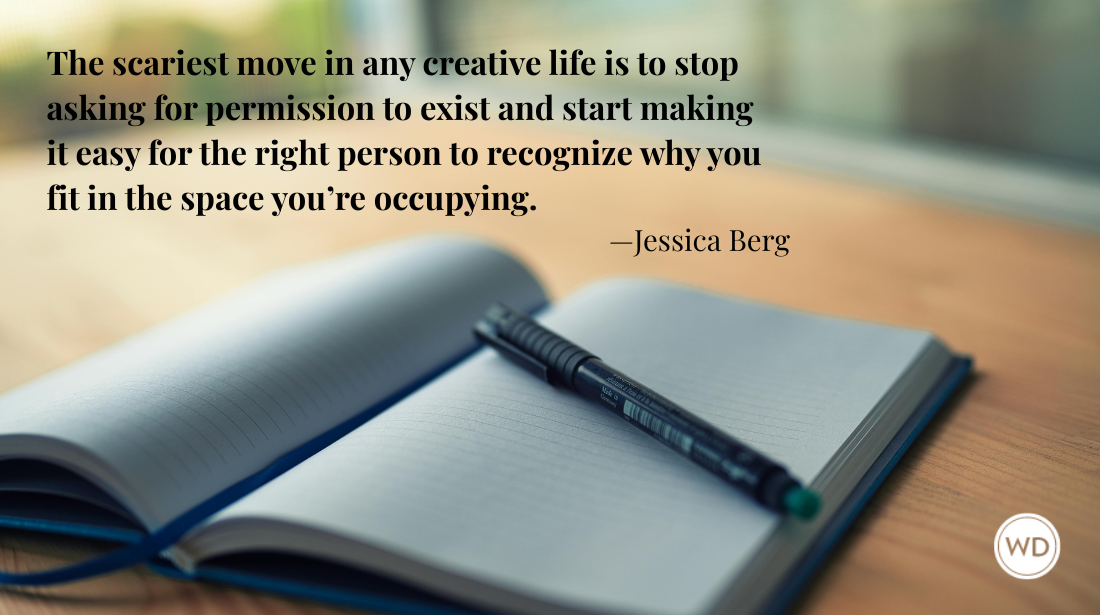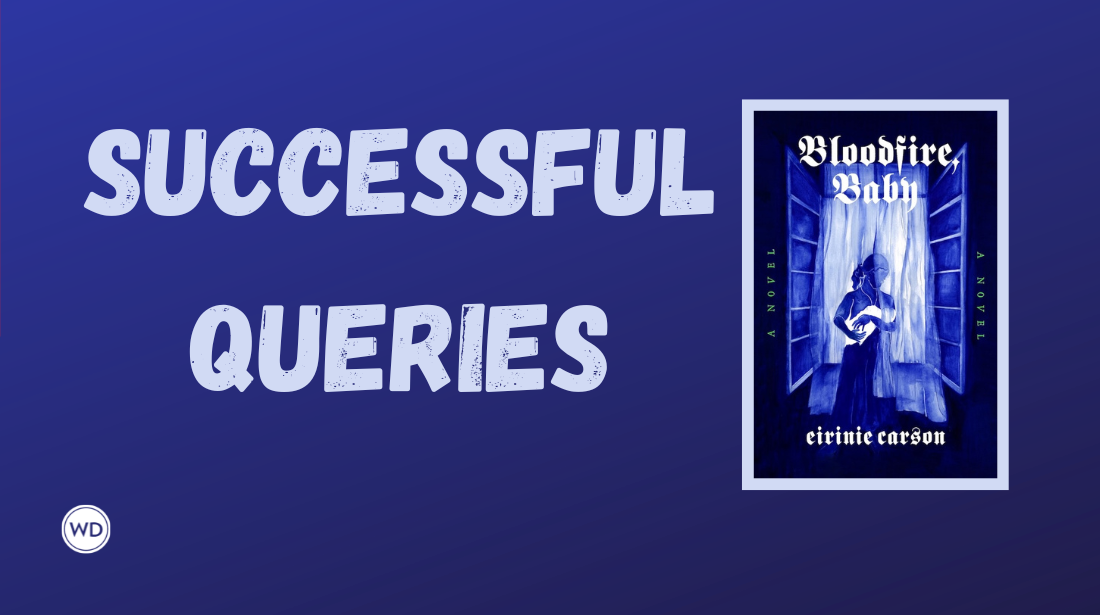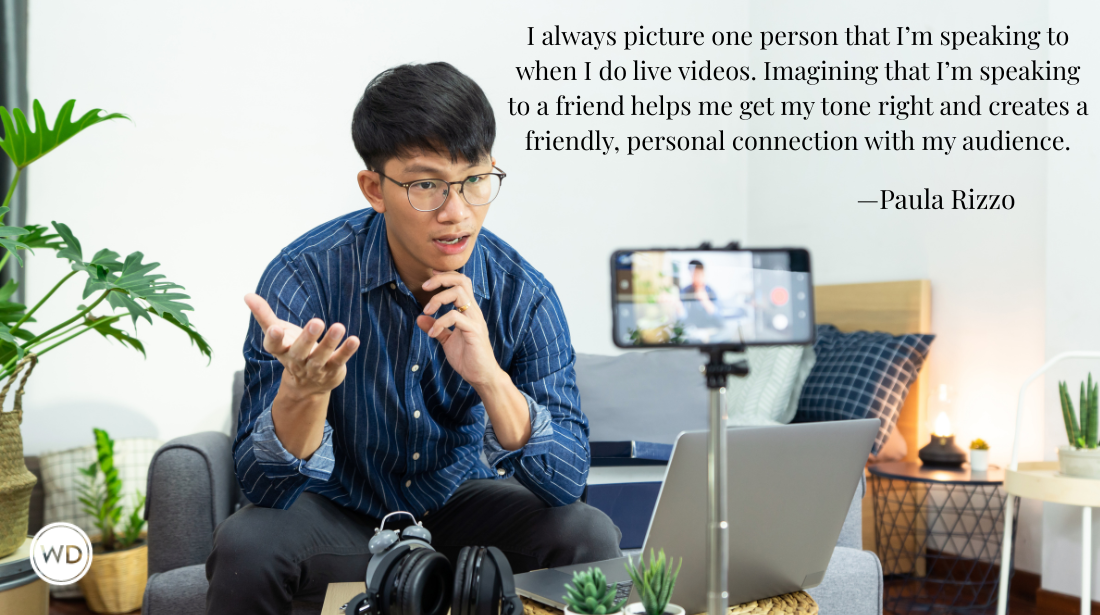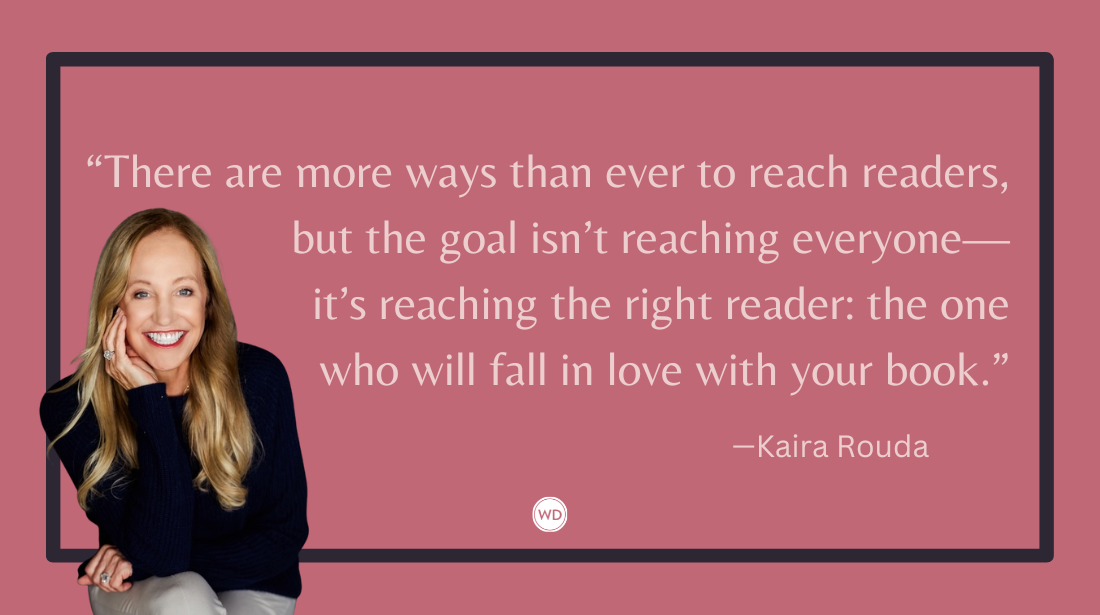12 Lessons Learned From a Debut Author
You can write that novel. It is possible to get published. I’m going to help. Here are 12 lessons I learned as I navigated the path to publication.
I wrote my first novel six years ago at the age of forty-three. I was not an English major. I did not possess a Master in Fine Arts. I hadn’t had any creative writing training whatsoever, unless you count my honors English class, as a senior in high school. Bottom line, I was starting from scratch.
If you’re new to writing, like I was, take heart. I had those what-the-hell-am-I-doing moments, too. And when you don’t have the knowledge base to gauge your place and progress in the authoring world, it can cause a bit of anxiety. So if you’re feeling this way, know that you’re not alone. You can write that novel. It is possible to get published. I just hope I can help you in some way on your journey.
Without further ado, here are twelve lessons I learned, as I navigated the path to publication.
This guest post is by Anne A. Wilson. She graduated from the United States Naval Academy and served nine years active duty as a navy helicopter pilot, which included deployment to the Persian Gulf. The Naval Helicopter Association named Anne and her crew Helicopter Aircrew of the Year, an award given for search and rescue. Hover is her debut novel. Visit her at www.anneawilson.com. Follow her on Twitter @Anne_A_Wilson or on Facebook at facebook.com/Anne.A.Wilson.Author.
1. Be patient.
I put this one first, because it’s the hardest lesson to learn. Publishing time is different than normal time. We’re talking dinosaur time. Geologic time. Everything stretches. And I mean, everything. My debut novel took two years to write and edit. My search for an agent and signing with her took another year after that (which I’ve since learned is actually pretty fast in this business). And when I was finally offered a book deal, it was for a release date nineteen months—almost a year and a half—later. So from the time I started writing this debut, until its release date, we’re talking four years.
Internalizing this lesson alone—being patient—about the world of publishing will save you heaps of anxiety in the long run.
2. Beware the rush to self-publish. Or, stated another way, self-publish for the right reasons.
Many authors are in a rush to get their story out there. They hit “upload” and bam. Published book.
I wrote four novels before HOVER. When I finished novel number one, I thought I had penned an epic fantasy masterpiece. But when I peeked at this manuscript again last year, just for fun, I winced. What I had thought was so exceedingly brilliant was actually . . . well, awful is really the only way to put it. But at the time, I didn’t have the experience or the know-how to recognize it.
Had I decided to self-publish that first book, before thoroughly exhausting all options—namely, having someone else critically address my work—it would have been a dreadful mistake. A jumping of the gun of colossal proportions.
I’m not saying if you’ve self-published, you’ve written a bad product. Your book could be awesome. But I am saying that if you’re in a rush, if you self-publish for expediency’s sake, what you present to the public might not be your best work. And once the book is out there, it’s out.
90 Days to Your Novel is an inspiring writing
manual that will be your push, your deadline, and your
spark to finally, in three short months, complete that first
draft of your novel. Order it now in our shop for a discount.
3. Check your ego. Turn the lens on yourself.
A literary agent at a Pitch Slam event once told me point blank, “I can’t sell this.” Period. Next person in line?
Sure, it hurt to hear that . . . but it wasn’t the first time I’d received that feedback. So, after massaging my bruised ego, I turned the lens on myself. What was I doing wrong? Turns out, I wasn’t presenting my manuscript correctly. I couldn’t verbalize, or write on paper, for that matter, a good hook, something that would entice agents to want to hear more.
It’s easy, especially when you’re in that rejection cycle, to play the blame game. Don’t. Rather, look at the person standing in the mirror. Is your work really up to snuff? Do you need to revisit? If you’ve done that and you’re confident with your manuscript, address your queries. Are the words on that one-page document good enough to sell your idea? Chances are, they might not be. Have you queried the right agents? Have you invested enough time with your querying or have you just given up after a month or two? You have to ask the hard questions and you have to ask them of yourself.
4. Stay positive. Your reputation starts now.
During your publishing journey, you might be tempted to lash out in public forums, especially when you’ve been rejected, when you’re frustrated. Don’t. It’s a big publishing world, but at the same time, not so big. If you’re spewing vitriol on Facebook or elsewhere about why the entire publishing universe is colluding against you, it won’t help. In fact, it may hurt. Just like authors are researching agents and editors, so are agents and editors researching you, if they’re considering signing you. Don’t let this be the reason you’re not signed.
5. The act of writing is the best way to learn to write.
Seems obvious, but we can get off track. We read articles and books and take classes and so forth on how to be better writers—and this is good—but all of these must come second to actually writing.
As I mentioned before, I wrote four novels before I wrote HOVER. And all the while, I was learning, getting a little better at it each time. You learn by doing. There is no short cut. There is no substitute for the act of writing.
I work full time. I have kids. I get it. Finding time to write is difficult, but not impossible. Often, it’s a shifting of priorities. And, always, always, always carry a notebook with you or have access to an app like Evernote on your phone—something so you can write no matter where you are. I can’t tell you the number of times I’ve cranked out scenes, hand written, in a physician’s waiting room, a parking lot, a locker room.
6. Get feedback.
You must do this. Ideally, it’s better if the critiques are not from friends and family, who might withhold needed constructive criticism, because they don’t want to hurt your feelings. Try a writing group instead. Or your book club. Or a professional editor. Just someone else. Someone that is not you needs to lay their eyes on your work.
7. You make your money with the editing.
In the hands of a capable editor, your work will be elevated, one, two, three, four notches higher. Just be ready to spend a lot of time here.
And while we’re on the subject, I guess I’ll add this. Remember, everyone who is critiquing you, as you prepare your manuscript, is on your side. They’re helping you. Sometimes it might not feel that way, and often, it’s tough to hear the truth. But I always say, far better to hear it from an editor now, than a reviewer later!
8. Beware too much backstory.
A common new-author mistake. Remember how I said I went back and peeked at novel number one? Actually, I did more than just peek. I read it again—all 161,000 words of it (yes, I know, but you have to give me some slack because it was epic fantasy). I realized—to my horror—that I had written 65,000 words of backstory. Yep, my magnificent epic fantasy novel should have started on page 283. I didn’t know it then, but I knew it five years and four novels later. Patience. Learning.
9. Read in genre.
My literary agent preaches reading 2,000 words in genre for every 2,000 words written. Like asking for feedback, like doing proper editing, you must do this. You learn by writing, but you also learn by reading. What are the “rules” for your genre? If you’re a romance author, you’d better know the rules, because they’re quite a bit different from the edicts for a work of women’s fiction.
And then, of course, you should begin to absorb these novels in a different way. Not as the casual reader, but with an author’s eye. How did that writer do that? Why did that scene work? Why did that other scene not work? What was it about that turn of phrase that caught my attention? Every time I read a book, it’s like going to school. Invaluable and necessary training.
10. Be a perpetual student of the craft
Read these books: (1) Stephen King’s On Writing, (2) Anne Lamott’s Bird by Bird, (3) James Scott Bell’s Plot and Structure and also Revision and Self-Editing for Publication, and (4) Writing the Breakout Novel by Donald Maas. There are more, but these will get you started.
And hear this now! You are never done with your writing education. There is always something to learn. You can always improve your writing. Becoming a published author does not mean you have it wired.
11. Never permanently delete your work.
Save everything. If you’ve ditched an idea or killed a chapter or whatever, save it somewhere. [Like this quote? Click here to Tweet and share it!] You’ll be surprised how many times you come back to it—maybe for another project years later—but it will be there.
In writing my second book under contract, I was 40K words in, when I realized I was writing the “wrong” book. So . . . I had to start over. But I saved everything, because I have scenes in there that I might be able to use for future works. And, I had 40K more words of writing practice under my belt, which is never a bad thing.
12. Educate yourself about the business side of publishing.
Craft is one thing, but authoring is a business, too. Read articles, take tutorials, register for webinars. I will sing the praises of Writer’s Digest forever on this one. They offer it all—information on how to get published, as well as offerings to help you with the craft of writing—so take advantage of this outstanding resource.
This is a long list, and if you’ve made it this far, thanks for hanging in there. I’ll leave you with this. In those moments when you’re questioning your sanity, when you’re drowning in negative self-talk, please remember, you’re not alone. Every published author was once an unpublished author. And the not-so-secret secret to publishing a novel is this. Create a good story. Write it well. And put in the hard work, day after day, consistently, patiently.
Other writing/publishing articles & links for you:
- Here are 10 questions you need to ask your characters.
- How to create an effective synopsis for your novel or memoir.
- Chapter 1 cliches and overused beginnings -- see them all here.
- Here are 7 reasons writing a novel makes you awesome.
- New Agent Alerts: Click here to find agents who are currently seeking writers.
- Download a year's worth of writing prompts right here.
Thanks for visiting The Writer's Dig blog. For more great writing advice, click here.
Brian A. Klems is the editor of this blog, online editor of Writer's Digest and author of the popular gift bookOh Boy, You're Having a Girl: A Dad's Survival Guide to Raising Daughters.
Follow Brian on Twitter: @BrianKlems
Sign up for Brian's free Writer's Digest eNewsletter: WD Newsletter




